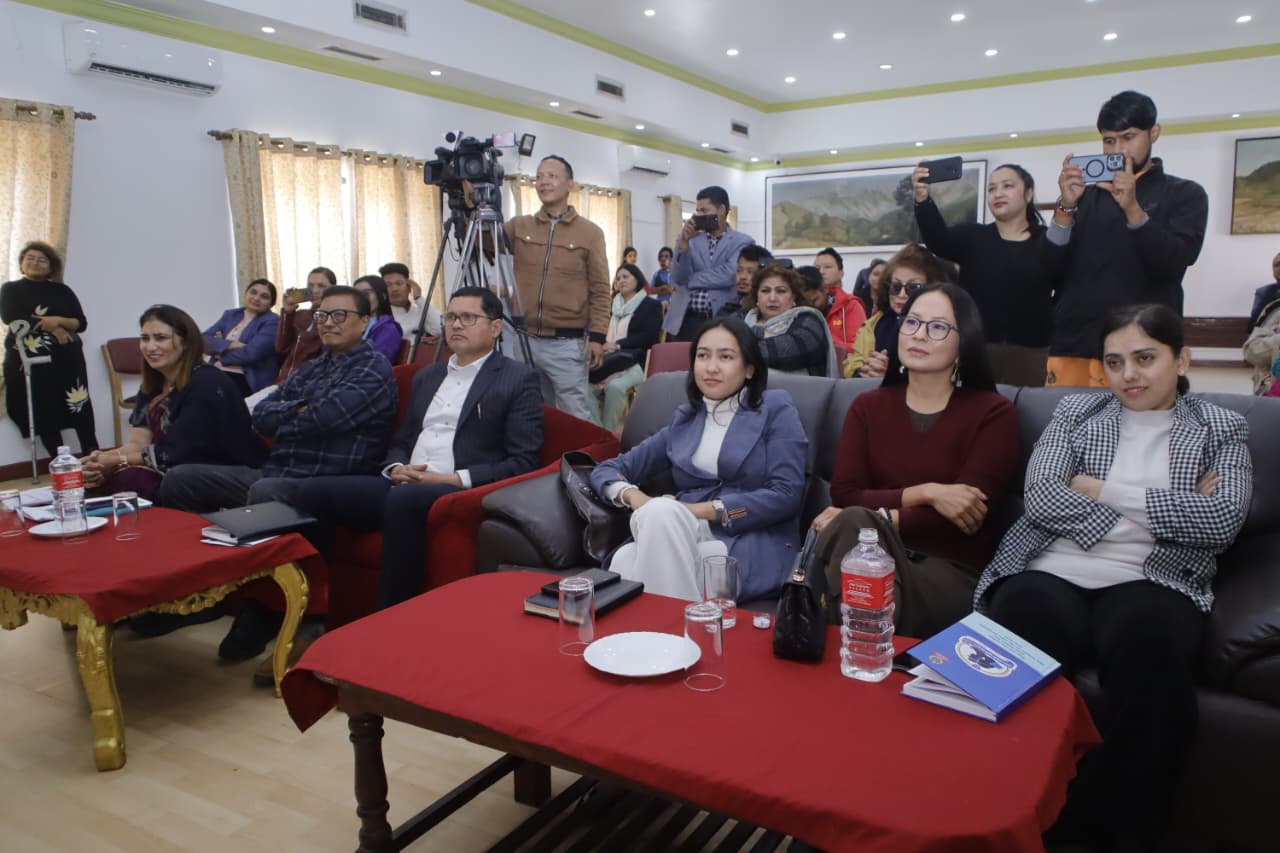
Kathmandu — Uday Bahadur Ranamagar, Acting Secretary at the Ministry of Communication and Information Technology, has expressed the government’s serious concern over the increasing cases of digital violence against women in Nepal. Speaking at an interaction program on rising digital violence, organized on Monday by the Forum for Women, Law and Development (FWLD) and Sancharika Samuha—one day before the launch of the 16 Days of Activism Against Gender-Based Violence—Secretary Ranamagar stated, “We must no longer delay the formulation of cyber laws in Nepal.”
Presenting data that show digital violence rising alongside increasing literacy, he said that in fiscal year 2075/76, police recorded 10 complaints of digital violence against children and 194 against women. By fiscal year 2081/82, the numbers had surged to 421 cases involving children and nearly 8,000 complaints filed by women, calling it “a matter of grave concern.”
He also emphasized the need for social media regulation laws. “Although the current situation may seem unfavorable, it has now become essential for the State to have regulatory access to social media,” he added. Stressing the need to incorporate digital literacy into the education curriculum, he further said, “Thirty-eight percent of women worldwide experience digital violence. We must think seriously about ways to reduce it.”
At the event, Police Inspector Deepa Bhattarai from the Cyber Crime Bureau reported that 9,000 cybercrime complaints were filed in 2081 alone. Half of these cases involved violence against women. “Men are mostly involved in economic fraud, while the remaining cases largely involve violence against women and children,” she said.
Sharing examples of incidents involving teenage girls, Inspector Bhattarai noted that many cases involve blackmail, sexual motives, or revenge. “Digital violence is closely linked with mental health. Parents must remain vigilant about situations involving trust and emotional relationships,” she said.
Former Miss Nepal and journalist Malvika Subba shared her own experience as a victim of digital violence. She said she joined social media in 2007 but could not report the violence she faced at the time. Warning that victims often face further harassment when they speak up, she emphasized the need for parental awareness and called for open discussion, dialogue, and empowerment to encourage victims to speak out.
Gen-Z activist Kishori Karki said discrimination against daughters within families has contributed to increasing violence. She added that while complaints are filed and legal processes begin, the law remains silent about the victim’s condition afterward. Families must become more aware to prevent such incidents, she stressed.
Advocate Sabin Shrestha, Executive Director of FWLD, said that strong laws are essential to reduce digital violence. “Cybercrimes are still being addressed under the Electronic Transactions Act 2064. Countries like India and Bangladesh already have IT laws. But in Nepal, we are still operating under a law that is 20 years old,” he said.
He informed that two separate cyber-related bills are currently under discussion in the House of Representatives and the National Assembly. “However, the cyber bill under parliamentary discussion is not women-friendly. The term ‘gender’ has not been used, and even though the statute of limitations has been extended, it is still insufficient. The bill is centered on violence against women and children,” he explained.
Program chair and President of Sancharika Samuha, Kamala Panthi, said that more women fall victim to digital violence than physical violence. As the nature of crime continues to evolve with time, laws have become essential to ensure justice for victims, she added.
The event began with a street drama titled “Independent Steps”, based on digital violence. The drama highlighted the importance of seeking justice for victims, sharing incidents with trusted individuals, accessing legal remedies, and filing complaints with the Cyber Bureau—even online.